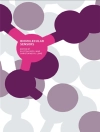For new students the language and concepts of midwifery care can at first be daunting. This book helps students to understand the expectations of midwifery training in relation to normal midwifery practice. It covers the basics of midwifery care including professional practice, frameworks informing midwifery care, key concepts and philosophies of care, communication and care skills, antenatal care, normal labour and birth, postnatal care, neonatal care and breastfeeding, as well as a brief introduction to medicines management in normal midwifery care. The book is designed to work alongside first taught modules in midwifery, and underpin training in subsequent years.
Inhoudsopgave
Introduction
Introduction
Normal Midwifery Practice
Communication and Interpersonal Skills in Normal Midwifery Practice
The Initial Antenatal Appointment and Care
Ongoing Antenatal Care
Midwifery Care in Normal Labour
The Role of the Midwife in Post-Natal Care
Neonatal Care
Medicines Management in Normal Midwifery Practice
Glossary
Over de auteur
Sam Chenery Morris (RGN, RM, RSCN) is an Associate Professor in Midwifery at the University of Suffolk. She has worked in all areas of midwifery practice, from the community to the delivery suite, from 1995-2003 before moving into teaching in 2006. Sam has a Ph D in midwifery education specifically around learning, assessment and grading in clinical practice and an MA in Interprofessional Healthcare Education. Her teaching expertise encompasses normal midwifery practice, neonatal care and screening, professional issues and research methods with her module responsibilities reflecting these areas. She is a link lecturer to local hospitals and has an External Examiner post at the University of Nottingham. Sam has presented at local, national and international conferences including RCM and RCN conferences, the Doctoral Midwifery Research Society Global Conference and International Confederation of Midwives Congress. She has written chapters in edited books and articles in midwifery journals, including Evidence Based Midwifery, MIDIRS, and Nurse Education in Practice.












